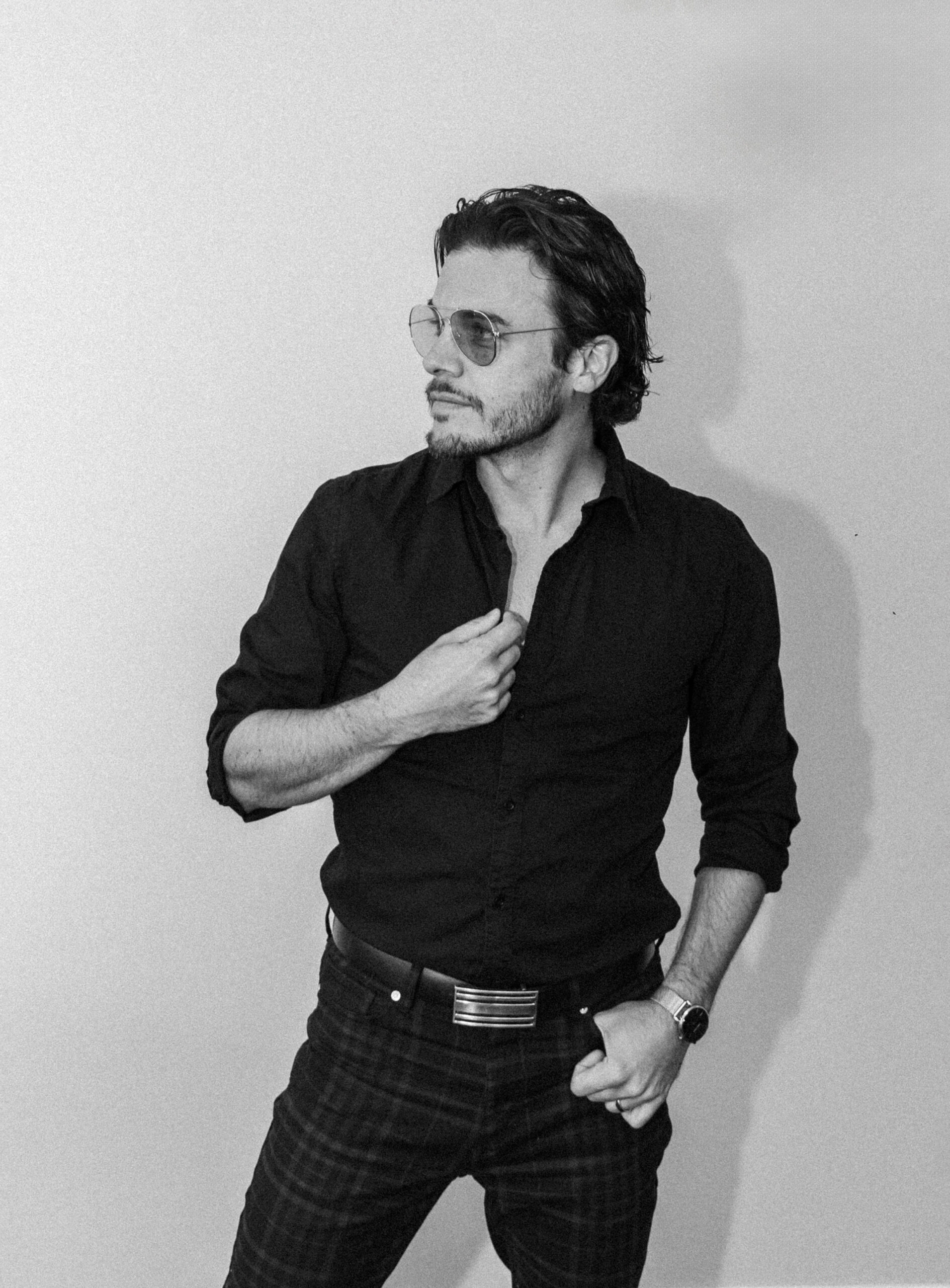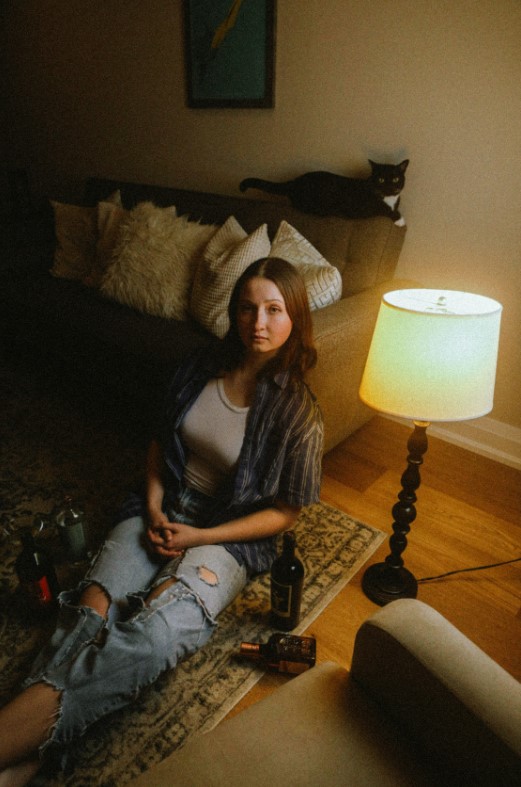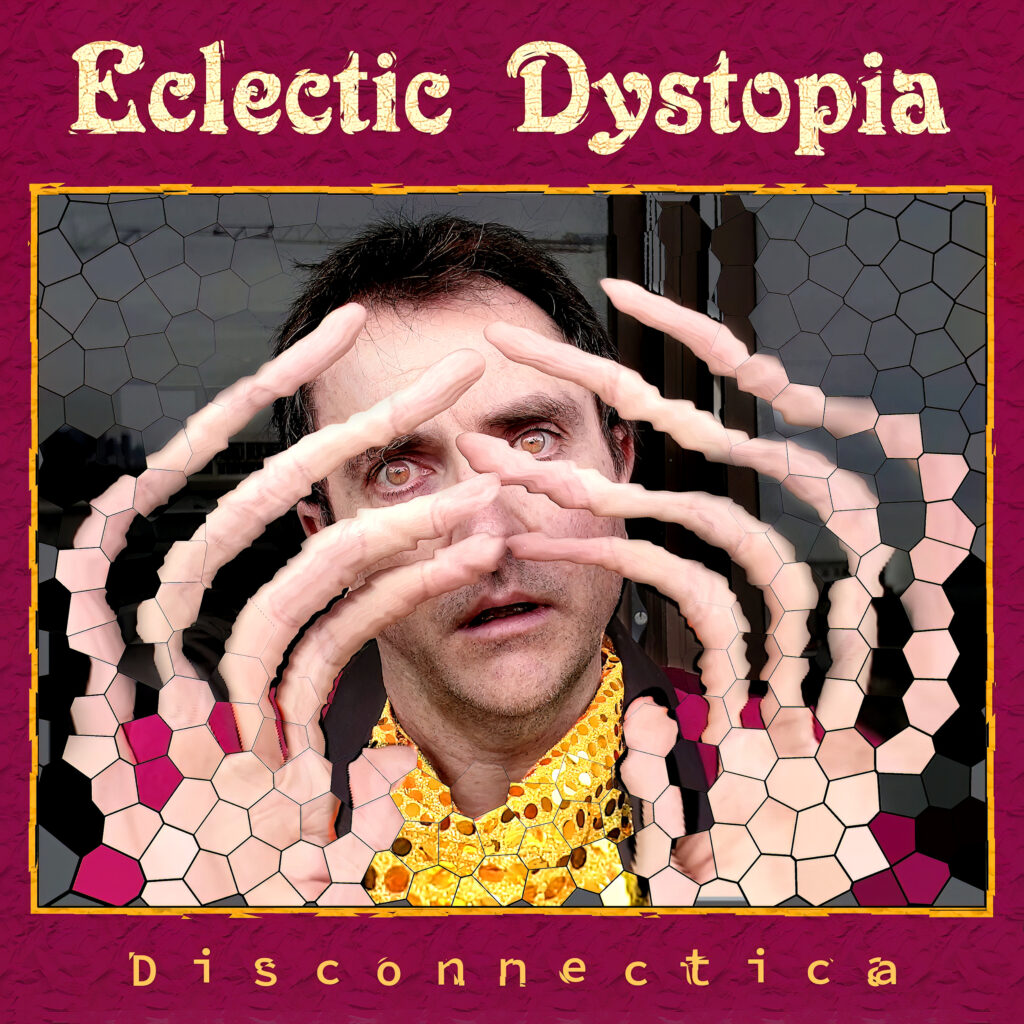A conversation with Jeff Eager about “Audience Of Three”

Q: Hi! What inspired you to write “Audience of Three,” and how does it reflect your feelings towards your three young daughters?
A: This song really serves as the mission statement for the whole album (titled ‘2070’). I asked myself some tough questions: what is the purpose of doing another album? Am I willing to put in a few years of my life, time and stress, and lots of money for this? It may reach very few people in the end, is it worth it? Does any of this art matter?
While I decided that yes, it was worth it, the motivation needed to be pure and long-term. Imagining my three daughters, decades from now, gave me a permanent audience to focus on, rather than be pushed and pulled around chasing after Spotify streams, popularity, current music trends, or any other temporary things. I had an unchanging north star to follow while creating this music. I was ready to go.
Q: You’ve mentioned Billy Joel, Don Henley, and Paul McCartney as influences. How have their styles shaped “Audience of Three”?
A: I’ve always been a big fan of classic songwriting, that ‘great-American-songbook’ style of moving chord changes and unforgettable, singable melodies. In that whole genre, there is something extra special about the 3-minute, drum-less ballad. There are these hauntingly beautiful songs that seem heartwarming and sad all at once. I wanted to write my Desperado, my Blackbird, my She’s Got A Way. Audience of Three gives me that same tingley, curious, unsettled, beautiful feeling.
Q: “Audience of Three” is described as the thematic anchor of the album “2070.” Can you elaborate on this vision statement?
A: This song is the cover letter for the listener; it’s the writing on the treasure map telling you about the adventure you can go on. It says to my kids “here is a gift you can unwrap decades from now.” It’s a snapshot of my voice and my heart at this moment in time that will be there when I’m old and when I’m gone (hopefully in the year 2070, I’m not gone, just old!)
Q: The live version of “Audience of Three” was recorded at B Town Sound. What made this location special for the recording?
A: B Town Sound is a special place for me. It’s a very unique studio space in my city of Burlington, Ontario, Canada. Since moving to Burlington, I’ve spent more and more time at B Town over the years, eventually recording the bedtracks for the album there, along with the horns, plus shooting live videos there. When the time came to put the record out, it just made sense to hold an album release show at B Town. We performed the whole album top to bottom live for an intimate crowd of friends, fans and family, including my wife and daughters.
Q: How does the live version of “Audience of Three” capture the emotional depth of your lyrics more so than the studio version?
A: There is a common problem that most recording artists can attest to and it goes like this: you write music for an album, rehearse it, maybe test run it once or twice in front of people. You get it all down on tape, release it, then you begin playing it live night after night … but that’s when the songs really start to settle into their own space! It’s usually the case that after performing your recorded music live for a bit, the songs take on a more natural presentation. You realize what parts on the album aren’t needed live, maybe the tempo shifts, maybe the instrumentation changes a little, you sing lines a bit differently.
Now, the temptation is to go back to the studio recordings and tweak things or re-record vocals, re-mix (I did this with my first album, ‘Bonavista,’ creating a re-released deluxe version of it). But I’ve grown to see it’s better to leave the original recording where it exists in time. Give yourself the freedom to release new versions of your music. Personally, I feel more passionate about this new live version of Audience of Three, but both recordings exist with a purpose, and fans can pick their favorite.
Q: You mentioned leaving a trail of clues in the lyrics. Can you share more about these clues and their significance?
A: I’ve always enjoyed lyrics that reference other songs, albums that have connecting points between tracks; overall I enjoy music that makes you want to go research, to dig deep and uncover meaning. The Beatles were great at this, to the point that people thought Paul McCartney was dead. Pink Floyd is another example where lyrics from one song reference those of another from a decade earlier.
My 2070 album, for example, has several famous song titles buried in the lyrics – songs that influenced me that I just incorporated into writing. My wish would be that millions of people would do the deep dive into my music and discover all its references and hidden double-meanings; but like the vision statement says, I’ll be happy if it only ends up being three people who get that obsessed with it.
Q: Your album “2070” is a gift for your daughters to unpack in the future. What messages do you hope they receive?
A: Well, they will get a snapshot of a man in mid-life, a father, a husband, an artist. Not all of the content is warm and fuzzy. There’s some very big life questions addressed on this album. There are some things that may surprise them or sadden them: the struggles of fatherhood, of marriage, of a career in the arts, of faith and wrestling with God. It’s very honest. But the message they will receive is that my love for them was unwavering – it was my driving force. Of course, they know they are loved now, but when they are grown, and especially when they are parents themselves, I think that understanding will deepen. (Personally, I had a renewed interest and understanding of my mom-at-40 only when I crossed 40 myself.)
Q: Performing “Audience of Three” live for your daughters was a memorable moment. Can you share more about their reaction and the audience’s response?
A: With such simple production on the song, listeners can’t help but be drawn into the lyrical content of Audience of Three. I can tell when performing it live, it really resonates with certain people. My girls are a bit too young to grasp the depth of meaning in the song, but they know Dad has written music about them and for them – they know that is special.
Q: With “Audience of Three” being a personal song, how do you balance vulnerability with the public nature of your music career?
A: Songs are my main place for public vulnerability. Interviews about my songs, like this, are the second place for vulnerability.
Other than that, my social media channels are all music and fun. It’s rock’n’roll, it’s videos of shows, guitar solos and photos of stage outfits, with a healthy mix of memes, Simpsons quotes and dad jokes. For the most part, family time for me is a separate space in life to enjoy – it’s time away from the social media world and the public image. I’ll always be authentic online, I just choose to show certain parts of my life more. (You won’t find many “guys, I just needed to jump on here and say…” videos.)
Q: Now that “Audience of Three (Live)” is premiering, what are your hopes for its reception among fans and new listeners alike?
A: While the idea of just writing for an audience of three people in the year 2070 is very freeing and idealistic, of course I hope many people enjoy this simple song, and the entire album. This is what’s on my heart and mind at this stage in life, but I know I’m definitely not alone. If Audience of Three resonates with you, please let me know. Send me a message or leave a comment, I love to hear what fans and new listeners think. I always enjoy the conversation. Thank you.







